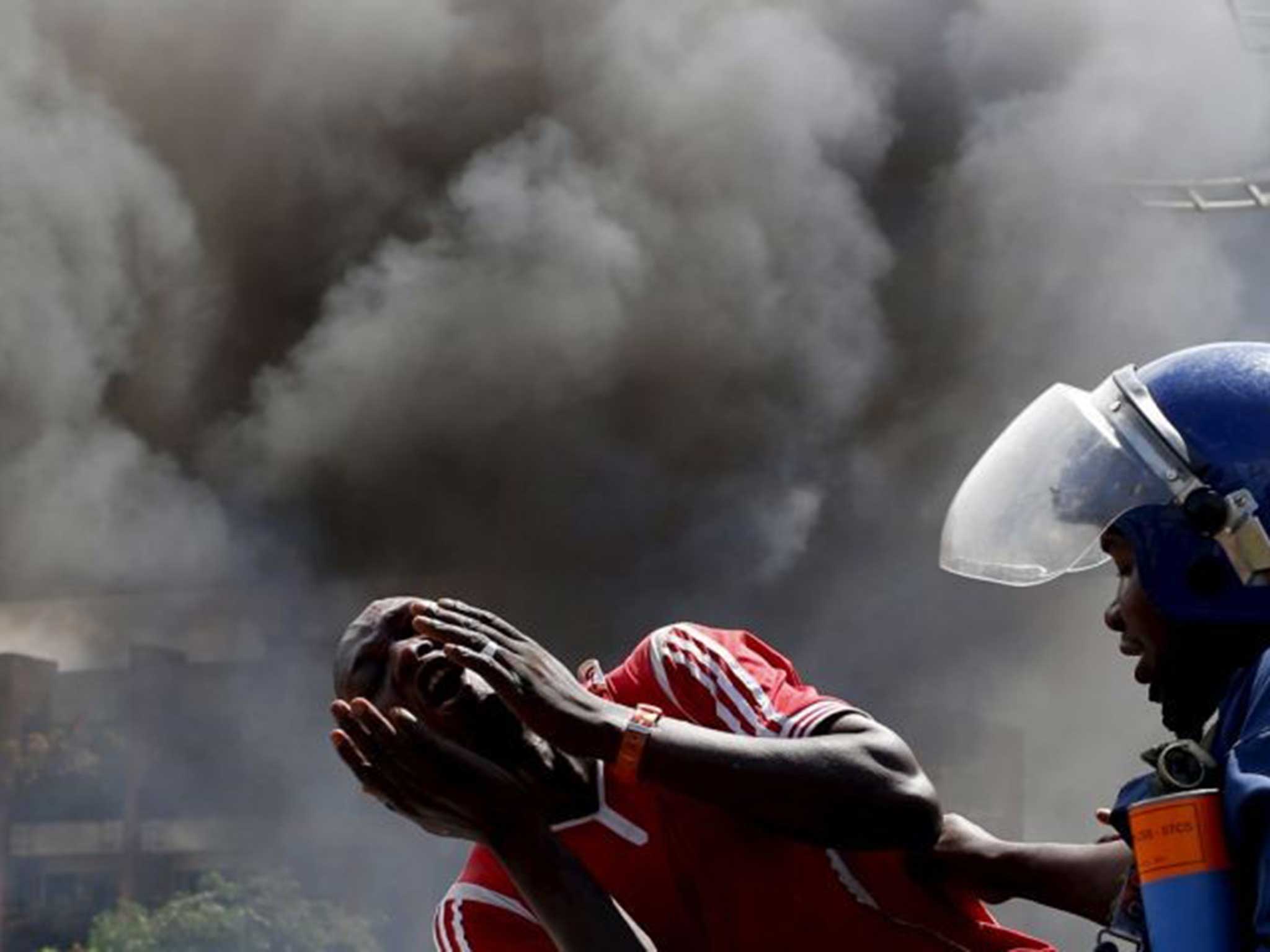Burundi profile: Why is situation so dire in the 'hungriest nation on Earth'?
Since gaining independence in 1962 the small, central African nation has been beset by conflict

Your support helps us to tell the story
From reproductive rights to climate change to Big Tech, The Independent is on the ground when the story is developing. Whether it's investigating the financials of Elon Musk's pro-Trump PAC or producing our latest documentary, 'The A Word', which shines a light on the American women fighting for reproductive rights, we know how important it is to parse out the facts from the messaging.
At such a critical moment in US history, we need reporters on the ground. Your donation allows us to keep sending journalists to speak to both sides of the story.
The Independent is trusted by Americans across the entire political spectrum. And unlike many other quality news outlets, we choose not to lock Americans out of our reporting and analysis with paywalls. We believe quality journalism should be available to everyone, paid for by those who can afford it.
Your support makes all the difference.Burundi may be teetering on the brink of another civil conflict, but what is the history of the small African nation and should we be concerned?
Where is Burundi?
The Republic of Burundi is a tiny landlocked nation in southeast Africa bordered by Tanzania (east and south), the Democratic Republic of Congo (west) and Rwanda (north). The ethnic make-up of Burundi’s population mirrors that of neighbouring Rwanda: a majority of Hutu (85 per cent) and minority Tutsis (roughly 14 per cent).
Population?
It is one of the most densely populated African nations with a population (as of 2012) of just over 10 million - the majority of which live in dire poverty. Offical languages are Kirundi, French and English with more spoken vernacularly.
Infant and child mortality are among the worst on the continent. Only one in two children attend school and according to some statistics by 2000 HIV/Aids had become the leading cause of death among adults. Some figures claim as many as one out of 15 adults are HIV/Aids positive - however, this data is extremely hard to substantiate.
What is the economy like?
Almost non-existent. In 2013 it earned the distinction of being the hungriest nation on Earth, according to the Global Hunger Index, and according to the International Monetary Fund (IMF) is among the poorest nations of the world. 42 per cent of the country’s national income stems from foreign aid.
Why is the situation so dire?
Formerly a German colony linked to what would become Rwanda, it was ceded to Belgium and then gained independence in 1962. Since then, it has been embroiled in almost 40 years of bloody conflict – and two genocides – that have crippled it.
The violence has generally stemmed along ethnic lines, pitting the majority Hutu against the minority Tutsi. Successive leaders have failed to maintain power as the country has lurched from civil war to coup to civil war.
A spark of hope in 1993 with the nation’s first democratically elected leader was swiftly extinguished after he was assassinated. Burundi plunged back into a state of war (and a second genocide) eventually superficially stabilising – after years of mediation and talks – in 2005. Conflict with hard-line Hutu groups continued sporadically until approximately 2008.
What does all of this boil down to?
Since gaining independence in 1962 hundreds of thousands of Burundians have died in conflict or genocide. The vanishing economy – reliant on agriculture and thus easily affected by war – meant thousands more emigrated. UNHCR estimates that 30,000 have already fled in the latest wave of violence with thousands more poised to go.
Burundi is hugely dependent on foreign aid (some of which has vanished in the latest political shenanigans) and bordered by neighbours (such as the DRC) with their own massive internal problems.
Join our commenting forum
Join thought-provoking conversations, follow other Independent readers and see their replies
Comments